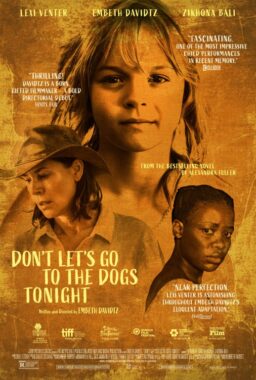Q. I noticed that several times you referred to the good Transformers as “Transformers” and not as Autobots. In the movie, Optimus Prime tells Sam that he can call his group the Autobots for short. Both the Decepticons and the Autobots are Transformers and of the same race, but over time, as Optimus describes it, a struggle for power ensued and peace was shattered. I just wanted to clear this up for you.
Dustin Letkeman, Saskatoon, Saskatchewan
A. Thanks for clearing that up. What is Autobots short for? Automobile Robots? Robots made of autos? That leads to this question: When Megatron came from space and landed at the North Pole, circa 1900, what was he made from, since he wasn’t from Earth and automobiles were presumably unavailable on his home planet?
A-ha. I have the answer right here. “Automobiles were reverse-engineered from Transformer technology,” according to film sage Peter Debruge, who pays close attention to these things. “That All Spark contains the potential to turn all modern devices back into killer robots (such as the Mountain Dew vending machine we see in the final showdown).” Yes, of course.
Q. It would be useful to explain what makes a movie like “Halloween” or “Last House on the Left” a step above the average Dead Teenager Movie. The former is sort of the “Citizen Kane” of DTMs, yet I agree with you entirely that it shouldn’t be classified as one. It seems some form of this debate arises every year when you give a negative review to a movie like “Chaos” or “Friday the 13th, Part LXII.”
Jared Glazer, Los Angeles
A. There can, of course, be a good DTM, just as a DTM can escape the genre altogether (“Last House on the Left” recycles the plot of Bergman’s “The Virgin Spring,” which I don’t think anyone considers a DTM). The horror genre provides a port of entry for many aspiring filmmakers, because the genre is the star, and the actors need not be expensive.
When I find a film like “Halloween,” I know I am looking at great filmmaking. How do I know? I just know. Great movies teach themselves to you. As Louis Armstrong said in trying to explain jazz, “There are some folks that, if they don’t know, you can’t tell ’em.”
Q. I’ve been on a quest to see “Moolaade.” This feature is now the basis of a Great Movie article on your Web site but the film is still unavailable on DVD. Is there anyway to see this film? Perhaps a cable station, or a papal decree?
Mike Hein, Cincinnati
A. Dan Talbot tells me his New Yorker Films will release “Moolaade” on DVD in December. The film remains in limited release around the country. Talbot adds: “[Writer-director Ousmane] Sembene’s death took me by surprise. When I saw him two years ago at Cannes, he was fit as a fiddle. I really loved that man, and I will miss him mightily.”
Q. In your response to a query last week you mentioned Pauline Kael. You also wrote an essay about her influence on critics, filmmakers, and filmgoers in your book Awake in the Dark. Yet aside from 5001 Nights at the Movies, which only includes capsule reviews, none of her books are in print. I fear for the longevity of her work. If someone would only reissue her books,I think America’s greatest and most important pundit would be discovered for a new generation.
Paul Babin, Yarmouthport, Mass.
A. I urgently agree. One book to start with would be the mammoth For Keeps, her selection of key reviews from all of her other collections. I also think Kael is an obvious candidate for the Library of America series.
Q. There is a warm place in my heart for “Sneak Previews” from right around 1980, when I was 10. I used to stay up with my dad to watch the two men argue passionately for or against magical movies that I might or might not be allowed to see some day. When I rent a classic movie that I most likely picked based on your advice, I always look up your review online. I wish I could also see your back and forth with Mr. Siskel to complement the review.
Owen Crow, Houston
A. I don’t think many of the “Sneak Previews” shows were saved by PBS, or “At the Movies” by Tribune, but from 1985 on, “Siskel & Ebert” and “Ebert & Roeper” were syndicated by Disney, and they’re streaming the new reviews and gradually digitizing the old ones and making them available starting this week on atthemoviestv.com
Just the other day, I came across a raging discussion-group debate about whether, on an old “Siskel & Ebert,” I knew the Sean Young character was a replicant in “Blade Runner.” One person unkindly suggested I didn’t. A wiser participant, analyzing my exact words, saw that I was trying to avoid giving away whether she was or not. The debates go on.
Q. I am a former Fortune 500 company employee who is one of the 50 million not covered by insurance. My wife and I are in our mid-50s and are in fear of getting sick and leaving our five kids with unthinkable and unpayable health care bills. My wife and I are self-employed and astronomical health insurance payments were sucking us and our credit cards dry. We had to stop.
We even tried President Bush’s Health Savings Plan, only to discover we were never saving anything and always paying for each doctor’s visit or emergency. We decided to try to save money ourselves for doctor visits and hope and pray we really don’t get seriously ill. This is no way to live and I think Mr. Moore’s movie [“Sicko“] is a courageous look at this country’s failings in this area. My wife and I are seriously thinking of moving to Canada or France to live out our lives.
Joe Shaw, Detroit
A. A leading drawback to the implementation of universal health care is that the medical industries contribute millions to political causes, and sick people don’t.
Q. In your review of “Lady Chatterley,” you said it was based on an earlier version of the D.H. Lawrence with the “too perfect” title of John Thomas and Lady Chatterley. Why is it too perfect?
Greg Nelson, Chicago
A. Look up “John Thomas” at www.wiktionary.com.
Q. A reader asked you about the spelling of Jean-Louis Coullo’ch’s name in “Lady Chatterley.” This kind of spelling with an apostrophe is quite common in the names of people coming from Brittany (Bretagne) in France, les “Bretons.”
Jean-Pierre Thilges, Luxembourg
A. And Daniel Andre Roy of Montreal adds: “C’H is included in the Breton alphabet, between CH and D. It is pronounced like the Spanish ‘j’ and German ‘ch.’ “
A new Answer Man column appears every Friday.
Q. Regarding your recent item about the Wilhelm Scream, I must recommend a clip I saw on YouTube, “The Wilhelm Scream Compilation,” which plays a long series of film clips containing the scream. Hearing it over and over, in quick succession and in such a diverse variety of films, is hilarious.
Sarah Jane Herbener, Lexington, Ky.
A. The Wilhelm Scream is a scream first recorded in 1951 and so beloved by sound-effects artists that it has been used in at least 175 movie since. Thanks to you, I viewed the YouTube compilation. A scream is worth a thousand words.












